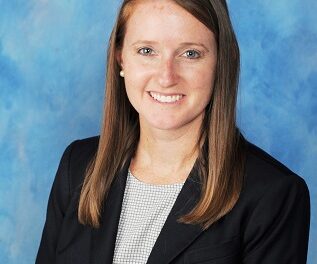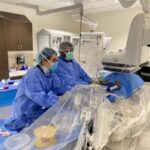The division of heart and lung transplantation and mechanical support of the UM department of Surgery is host to an international conference exploring the impact of the COVID pandemic on cardiovascular care around the globe. The 19th expert forum of the prestigious Roland Hetzer International Cardiovascular Surgery Society brings together leaders in cardiac care from 5 continents and some health care administrators and politicians. Experts  will report on their national experience during the COVID pandemic and how their health care systems dealt with the unparalleled challenges of the new infection. In the U.S. alone elective cardiac procedures were down by over 60% due to COVID in 2020, and lung transplants were less often performed during the pandemic. Many patients had to be supported by ECMO, an artificial lung replacement machine. Now an increasing number of patients require lung transplants for irreversible lung damage due to COVID-19.
will report on their national experience during the COVID pandemic and how their health care systems dealt with the unparalleled challenges of the new infection. In the U.S. alone elective cardiac procedures were down by over 60% due to COVID in 2020, and lung transplants were less often performed during the pandemic. Many patients had to be supported by ECMO, an artificial lung replacement machine. Now an increasing number of patients require lung transplants for irreversible lung damage due to COVID-19.
Miami Transplant Institute Hosts Worldwide Conference on Impact of COVID on Cardiovascular Care
“Bringing together front line workers from all around the world and learning from each other how to approach the challenges of an unprecedented new disease will help all of us to find ways to better help our patients, who are in desperate need for good advanced therapies in heart and lung disease” says Matthias Loebe, M.D., Ph.D., president of the RH international surgical society and chief of heart and lung transplantation at the University of Miami. The society used to meet several times per year and would hold these expert forums as part of large international congresses in the field of cardiac surgery. After a hiatus of almost two years, the society meets for the first time virtually. “We have all been working together for many years, we value the exchange with our friends and peers from around the world, so we are looking forward to meet in person again. But this subject is of such pressing relevance for all of us and for the communities we serve, that we all felt we have to get together virtually and share the latest trends in dealing with heart patients affected by COVID.”
The proceedings of the conference will be made available through the webpage of the RHICS.




























